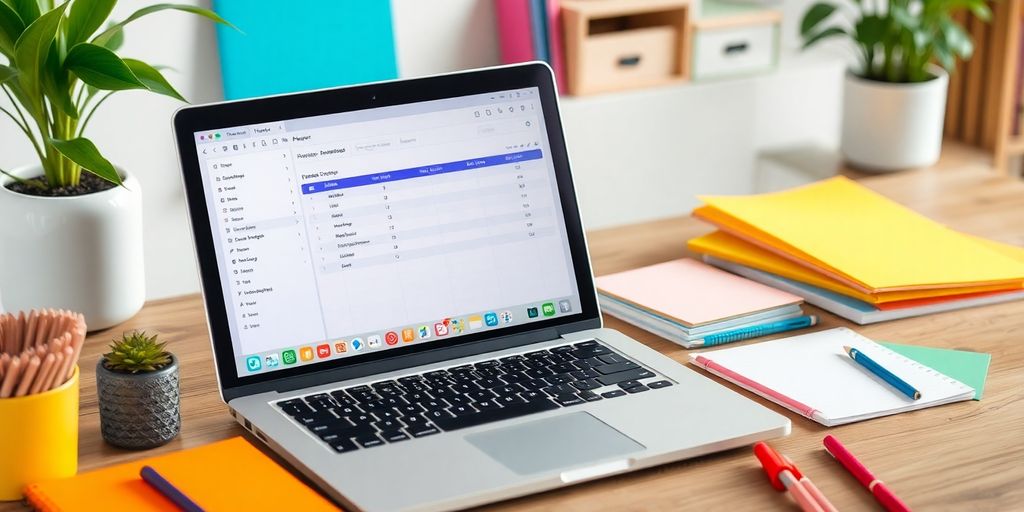
The Ultimate Guide to Budget Categories Where Your Money Should Go
Budgeting can feel like a chore, but it's really just about knowing where your money's going. Think of budget categories like sorting your laundry. You wouldn't wash your whites with your colors, right? Same goes for your money. By splitting your expenses into different categories, you can see where you're spending too much and where you might have some wiggle room. The trick is to find the right balance that works for you. Whether you're a spreadsheet fanatic or prefer keeping it simple, there's a way to budget that fits your lifestyle.
Key Takeaways
- Budget categories help you track spending and improve financial habits.
- Start with essential categories and expand as needed for more detail.
- Different budgeting methods work for different people; find what suits you.
- Budgeting isn't one-size-fits-all; tailor it to your lifestyle and goals.
- Use technology like apps and tools to simplify budget management.
Understanding Essential Budget Categories

When it comes to managing your finances, sorting out your essential budget categories is a must. These are the non-negotiables, the things you absolutely need to cover each month. Let's dive into some of the big ones:
Housing and Utilities
Housing eats up a big chunk of your budget. Whether it's rent or mortgage, it's often the largest monthly expense. Then add utilities like electricity, water, and internet. These are the basics you can't skip. It's smart to aim for housing costs to be around 30% of your income, but this can vary based on location and personal circumstances.
Transportation Costs
Getting from point A to B isn't free. Whether you drive, take public transport, or bike, there are costs involved. Think about car payments, fuel, maintenance, or monthly bus passes. Keeping these expenses in check can help you avoid unexpected costs down the line.
Food and Groceries
Food is another biggie. From grocery shopping to the occasional dining out, feeding yourself and your family is essential. You might find it helpful to break this down further into categories like groceries and dining out to better track where your money goes.
Healthcare and Insurance
Your health is priceless, but healthcare isn't. Medical expenses, insurance premiums, and even routine check-ups add up. It's crucial to budget for these to avoid being caught off guard by unexpected medical bills. A good health insurance plan can be a lifesaver, covering everything from routine visits to emergency care.
Budgeting isn't about restricting yourself; it's about making sure your money goes where it matters most. By focusing on these essential categories, you're laying the foundation for a stable financial future.
For more insights on how to allocate your funds, check out our guide on essential budget categories for household.
Exploring Discretionary Spending Categories
When it comes to budgeting, discretionary spending can often be the most enjoyable part. It's where your personality and preferences really shine through. Discretionary spending is all about the non-essentials that make life more enjoyable. Let's break down some of these categories.
Entertainment and Recreation
Entertainment and recreation are all about having fun and relaxing. Whether it's a movie night, a concert, or a day at the amusement park, these expenses add joy to life. Consider:
- Movie and concert tickets
- Streaming services
- Sports and fitness memberships
Dining Out and Takeout
Who doesn't love a good meal out? Dining out and takeout can be a delightful way to experience new cuisines and take a break from cooking. Keep in mind:
- Restaurant meals
- Coffee shops and cafes
- Delivery services
Travel and Vacations
Travel is a chance to explore new places and cultures. Whether it's a weekend getaway or a long vacation, travel expenses can add up. Think about:
- Airfare and accommodations
- Local attractions and tours
- Travel insurance
Hobbies and Leisure
Hobbies are a fantastic way to unwind and express creativity. Investing in your hobbies can provide immense satisfaction. Consider:
- Craft supplies
- Musical instruments
- Books and magazines
Balancing discretionary spending with your financial goals can be tricky, but it's essential to ensure that you're enjoying life while staying within your budget. Remember, it's all about finding what brings you joy and making room for it in your financial plans.
The Importance of Savings and Investments
Planning for the future is more than just a good idea—it's a necessity. Building up your savings and investments is a cornerstone of financial health, providing a safety net for life's unexpected moments and setting the stage for future goals.
Emergency Fund
An emergency fund is like your financial safety net. It's there to catch you when life throws unexpected expenses your way, like a car repair or a medical bill. Start by setting a goal, maybe $1,000 to begin with, and then aim to cover three to six months of living expenses. This fund is crucial to avoid dipping into your long-term savings or going into debt when the unexpected happens.
Retirement Savings
Saving for retirement is something you shouldn't put off. Whether it's through an employer-sponsored 401(k) or an Individual Retirement Account (IRA), the earlier you start, the better. Compound interest is your friend here, as it allows your money to grow exponentially over time. Even small, regular contributions can make a big difference when it's time to retire.
Education Savings
Education is one of the best investments you can make for yourself or your children. Consider opening a 529 Plan to save for college expenses. These accounts offer tax advantages and can be a great way to ensure that education costs don’t become a burden. Start saving early, and contribute regularly to make a significant impact.
Investment Accounts
Investing can seem daunting, but it's one of the best ways to grow your wealth over time. Consider opening a brokerage account to invest in stocks, bonds, or mutual funds. Diversification is key—spreading your investments across different asset types helps manage risk. If you're new to investing, consider starting with index funds, which offer broad market exposure at a low cost.
Remember, saving and investing are not just about putting money aside. They're about planning for your future and making sure you're prepared for whatever life throws your way. Whether it's a safety net for unexpected expenses or building a nest egg for retirement, every little bit helps.
Managing Debt and Financial Obligations
Credit Card Payments
Credit card debt can feel like a never-ending cycle, but breaking free is possible with a solid plan. Prioritize paying off high-interest credit cards first to save money in the long run. Consider setting up automatic payments to avoid late fees and stay on track. A helpful tip is to pay more than the minimum amount whenever possible. This will reduce the total interest you pay over time.
Student Loans
Student loans can be a heavy burden, especially when you're just starting out in your career. Look into different repayment plans that might suit your financial situation better, like income-driven repayment plans. Refinancing is another option to explore if you're looking for a lower interest rate. Don't hesitate to reach out to reputable credit counseling organizations for guidance on managing your student loan debt.
Mortgage and Rent
Housing costs often take up a big chunk of your budget. It's essential to ensure you're not overstretching your finances. Aim to keep your mortgage or rent payments below 30% of your monthly income. If you're renting, consider negotiating your lease terms or looking for a more affordable place if your current rent is too high. For homeowners, refinancing your mortgage could lead to savings if interest rates drop.
Personal Loans
Personal loans can be a useful tool for consolidating debt or covering unexpected expenses. However, it's crucial to understand the terms and interest rates before committing. Make sure the monthly payments fit comfortably within your budget. If you're struggling with multiple personal loans, consolidating them into one might simplify your payments and potentially lower your interest rate.
Incorporating Personal and Family Expenses
Clothing and Apparel
Clothing is more than just a necessity; it reflects personal style and comfort. When budgeting for clothing, consider seasonal needs and special occasions. It's wise to allocate funds for both adults' and children's clothing, as well as shoes and accessories. Remember, sales and discount stores can provide quality options without breaking the bank.
Childcare and Education
Childcare and education are significant expenses for families. From daycare fees to school supplies, these costs can add up quickly. It's helpful to plan for:
- Daycare or preschool tuition
- After-school programs
- School uniforms and supplies
- Extracurricular activities
Proactively setting aside money for these expenses can ease the financial burden throughout the year.
Pet Care
For pet owners, budgeting for pet care is essential. This includes not only food and grooming but also veterinary visits and pet insurance. Regular check-ups and vaccinations can prevent costly health issues down the line. Consider:
- Pet food and treats
- Grooming services
- Veterinary visits
- Pet insurance
Being prepared for these costs ensures your furry friends are well taken care of.
Gifts and Donations
Giving is an essential part of many people's lives, whether it's for birthdays, holidays, or charitable causes. It's important to include a budget for:
- Birthday and holiday gifts
- Charitable donations
- Special occasion gifts
Allocating a specific amount for gifts and donations helps in spreading joy without straining your finances.
By thoughtfully incorporating these personal and family expenses into your budget, you can manage your finances more effectively and enjoy peace of mind knowing you're prepared for these regular costs. For more insights on managing variable expenses like clothing and personal care, be sure to explore additional resources.
Adapting Your Budget to Lifestyle Changes

Life Events and Milestones
Life is full of surprises, and some of them come with a hefty price tag. Major life events, like weddings, the birth of a child, or sending a kid off to college, can significantly impact your budget. It's smart to plan ahead for these milestones by setting aside funds in a dedicated savings account. Here's a quick list to consider:
- Wedding expenses: Venue, attire, and catering can add up fast.
- Childbirth costs: Hospital bills, baby gear, and childcare.
- College tuition: Tuition, books, and living expenses.
Career Changes
Switching jobs or stepping into a new career can be both exciting and nerve-wracking. Often, this comes with a change in income. If you’re earning more, great! But if it's less, you might need to adjust your spending habits. Consider:
- Emergency fund: Keep at least three months' expenses saved up.
- New income: Reassess your budget based on your new salary.
- Benefits: Look into what your new job offers, like health insurance or retirement plans.
Relocation and Moving
Moving to a new city or even just across town? It's not just about packing boxes. Relocation can mean new housing costs, changes in transportation, and even different utility rates. To manage these changes:
- Housing costs: Compare rent or mortgage rates in the new area.
- Transportation: Consider public transit options or the need for a car.
- Utilities: Research average costs for electricity, water, and internet.
Health and Wellness
Your health is priceless, but maintaining it can be costly. Whether it's a new gym membership or unexpected medical bills, health expenses can sneak up on you. Consider these tips:
- Preventive care: Regular check-ups can prevent costly health issues later.
- Fitness: Opt for affordable exercise options, like home workouts or community classes.
- Health insurance: Review your policy to ensure it covers your needs.
Life changes are inevitable, but with a bit of planning, they don't have to derail your financial stability. Keep your budget flexible to accommodate the unexpected, and remember, it's okay to adjust as you go.
Utilizing Technology for Budget Management
Budgeting Apps and Tools
Budgeting apps have taken the financial world by storm. With just a tap, these apps can track your spending, categorize expenses, and even alert you when you're overspending. One standout feature is their ability to sync with your bank accounts, providing real-time updates on your financial health. Some popular apps include Mint, YNAB (You Need a Budget), and PocketGuard. These tools not only help in maintaining a budget but also in setting financial goals and monitoring progress.
Online Banking Features
Online banking has revolutionized the way we manage money. Today, most banks offer robust online platforms where you can view transactions, pay bills, and transfer money without stepping foot in a branch. Security is a top priority, with features like two-factor authentication and encryption keeping your data safe. These platforms often come with budgeting tools that categorize your spending, making it easier to see where your money goes.
Expense Tracking Software
For those who prefer a more detailed approach, expense tracking software can be invaluable. Programs like Quicken or Microsoft Money offer comprehensive solutions for tracking every penny. They allow for detailed reporting and can generate graphs and charts to visualize spending patterns. This kind of software is particularly useful for those managing multiple accounts or needing to keep track of business expenses.
Financial Planning Services
If you're looking for a more personalized approach, financial planning services might be the way to go. These services often combine technology with human expertise to provide tailored financial advice. Whether it's planning for retirement, investing, or saving for a big purchase, these services can offer guidance and strategies to meet your financial goals. While some services are available online, others might require in-person consultations.
Wrapping It Up: Your Path to Smarter Spending
Alright, so we've covered a lot about budget categories and how they can really help you get a grip on your finances. It's like meal planning, but for your money. You start with the basics, like housing and food, and then decide how detailed you want to get. Some folks love diving into every little expense, while others keep it simple. The key is finding what works for you. Remember, a budget isn't set in stone. It's a tool to help you live the life you want, without the stress of wondering where your money went. So, take a deep breath, grab a cup of coffee, and start planning. You've got this!
Frequently Asked Questions
What are budget categories?
Budget categories are like labels for your spending. They help you track where your money goes, like housing, food, or entertainment. This way, you can see what you spend the most on and where you might save.
How do I decide what categories to include in my budget?
Start by listing the big things you spend on, like rent or groceries. Then add smaller things, like movies or snacks. It's okay to keep it simple or get detailed; just pick what works best for you.
Why is it important to have budget categories?
Budget categories help you see exactly where your money is going. This can help you make better choices, save money, and avoid spending too much on things you don't need.
How many budget categories should I have?
There's no right number. Some people like just a few, like housing and food. Others prefer more, like groceries, dining out, and snacks. Choose what helps you track your spending best.
Can I change my budget categories later?
Yes, you can change your budget categories anytime. If you notice you're spending a lot in a new area, just add it as a category. It's your budget, so make it work for you.
What if I forget to include something in my budget?
If you forget something, just add it when you remember. It's normal to miss things at first. Over time, you'll get better at tracking all your spending.